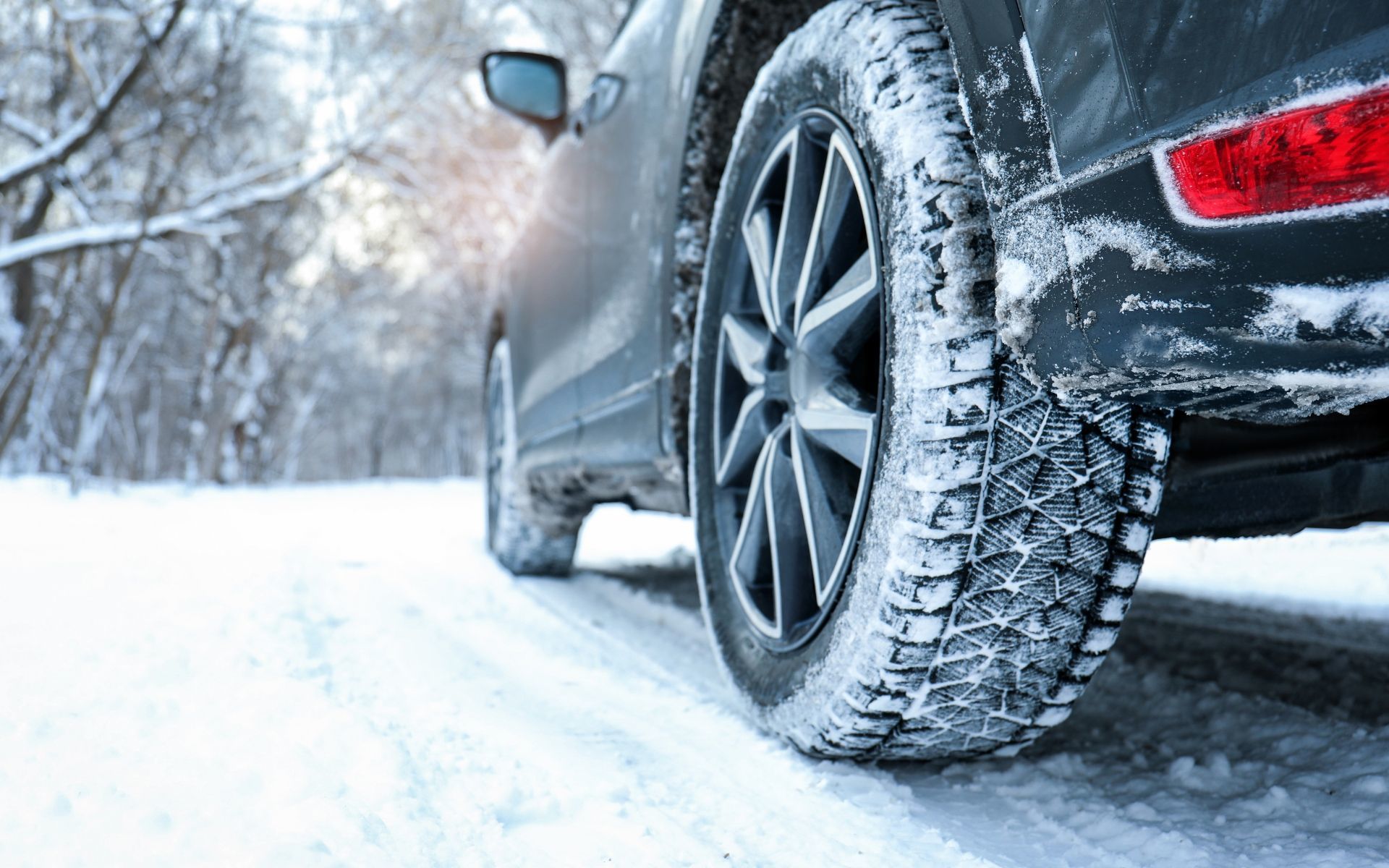January 17 2024,

In most parts of Canada, having specialist winter tires fitted to your car is essential for safe driving during the colder months. But what makes them a better choice than all-season tires? Here are four main differences.
1) Softer Rubber for Improved Grip

In lower temperatures, the rubber in regular summer tires becomes rigid, providing less grip on the pavement. The rubber compound used in winter tires is a little stiffer in summer but stays softer in cold weather for better traction. At -10 °C, summer tires become dangerously rigid while winter tires can still provide full grip.
2) Deeper Treads for Better Traction
A more flexible compound isn't the only feature that ensures winter tires provide better grip. Regular tires have a minimum legal tread depth of 1.5 mm, but winter tires normally have at least triple that tread depth—and often more. They provide more traction on icy surfaces for better handling and help shorten braking times to help keep you safer on the road.
3) Different Tread Patterns

Another reason to install winter tires is because they feature a distinct tread pattern. The treads on winter tires are not only deeper, they’re designed to quickly disperse snow and slush from under the wheels. This ensures that the surface of your tires stays in contact with the pavement at all times, greatly improving traction.
4) Spikier Tire Surface

The last major difference between winter tires and summer tires is the surface texture. Winter tires are covered with thousands of tiny spikes and dimples that dig into compacted snow and ice for a better grip—and better handling when cornering and braking.
When to Fit Winter Tires
In most provinces, winter tires aren't required by law, but it’s advised to use them if the temperature is consistently below 7° C. In Quebec, the law requires that drivers have their car fitted with winter tires before the first of December each year. In British Columbia, many highway routes require winter tires from the first of October to the end of April.
Are All-Season or All-Weather Tires a Good Alternative?

If the weather in your area is generally mild, you may not need winter tires. In that case, choose from one of two tire types that offer better grip than dedicated summer tires. All-season tires are designed to be used year-round but only in warmer regions—they aren’t a safe option if the temperature often falls below 7° C. All-weather tires can provide reliable grip in cold temperatures and light-to-medium snowfalls, but if you’re driving in a region with heavy snow and ice, winter tires are still the safest option to see you through until spring.
Book a Tire Service at Your Local Dilawri-Franchised Dealership
If you’re unsure what type of tires is best for your car, we can help. Reach out to your local Dilawri-franchised dealership to request a tire inspection or tire change. We’re here to help you enjoy peace of mind year-round.

 Canadian-Owned and Operated Since 1985
Canadian-Owned and Operated Since 1985